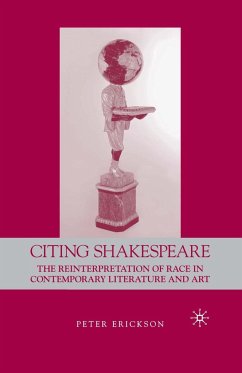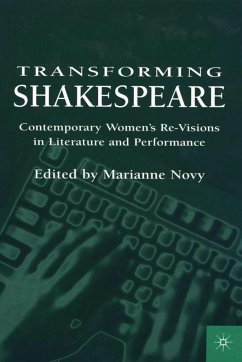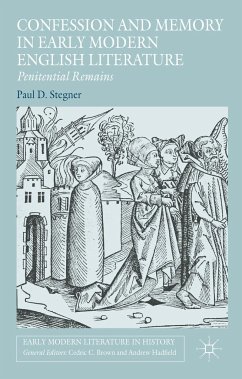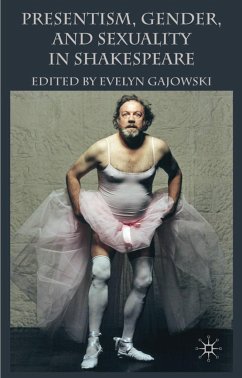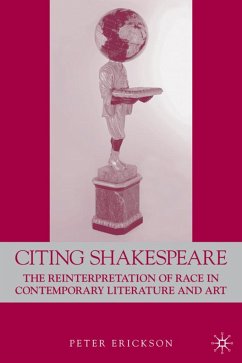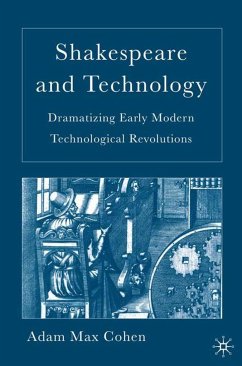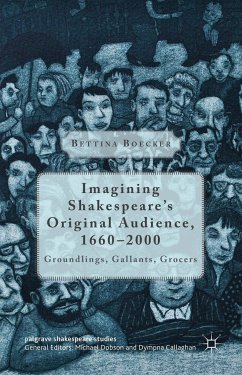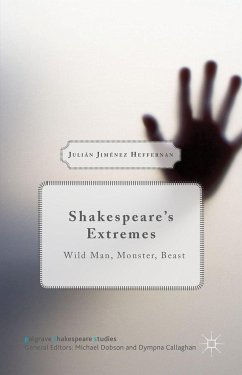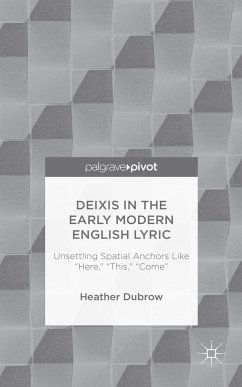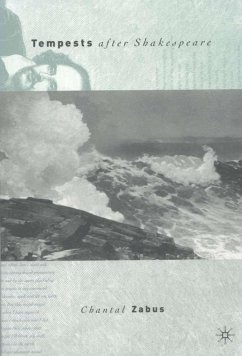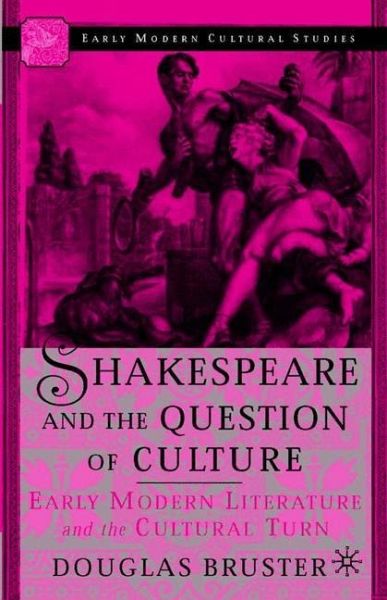
Shakespeare and the Question of Culture
Early Modern Literature and the Cultural Turn

PAYBACK Punkte
19 °P sammeln!
The last two decades have witnessed a profound change in the way we receive the literary texts of early modern England. One could call this a move from 'text' to 'culture'. Put briefly, earlier critics tended to focus on literary texts, strictly conceived: plays, poems, prose fictions, essays. Since the mid-1980s, however, it has been just as likely for critics to speak of the 'culture' of early modern England, even when they do so in conjunction with analysis of literary texts. This 'cultural turn' has clearly enriched the way in which we read the texts of early modern England, but the interd...
The last two decades have witnessed a profound change in the way we receive the literary texts of early modern England. One could call this a move from 'text' to 'culture'. Put briefly, earlier critics tended to focus on literary texts, strictly conceived: plays, poems, prose fictions, essays. Since the mid-1980s, however, it has been just as likely for critics to speak of the 'culture' of early modern England, even when they do so in conjunction with analysis of literary texts. This 'cultural turn' has clearly enriched the way in which we read the texts of early modern England, but the interdisciplinary practices involved have frequently led critics to make claims about materials - and about the 'culture' these materials appear to embody - that exceed those materials' representativeness. Shakespeare and the Question of Culture addresses the central issue of 'culture' in early modern studies through both literary history and disciplinary critique. Douglas Bruster argues that the 'culture' literary critiques investigate through the works of Shakespeare and other writers is largely a literary culture, and he examines what this necessary limitation of the scope of 'cultural studies' means for the discipline of early modern studies.





